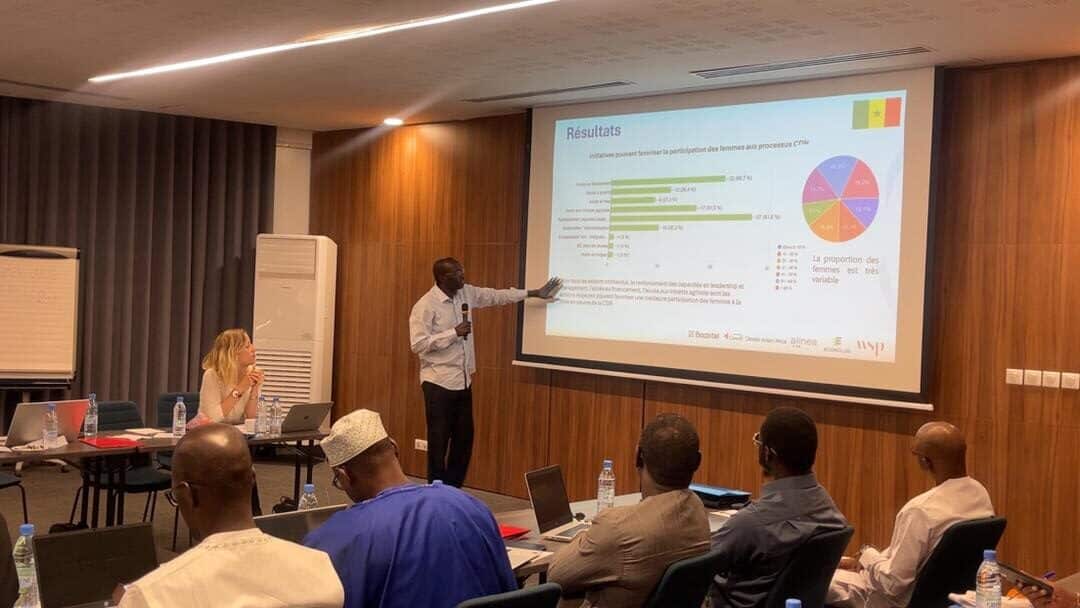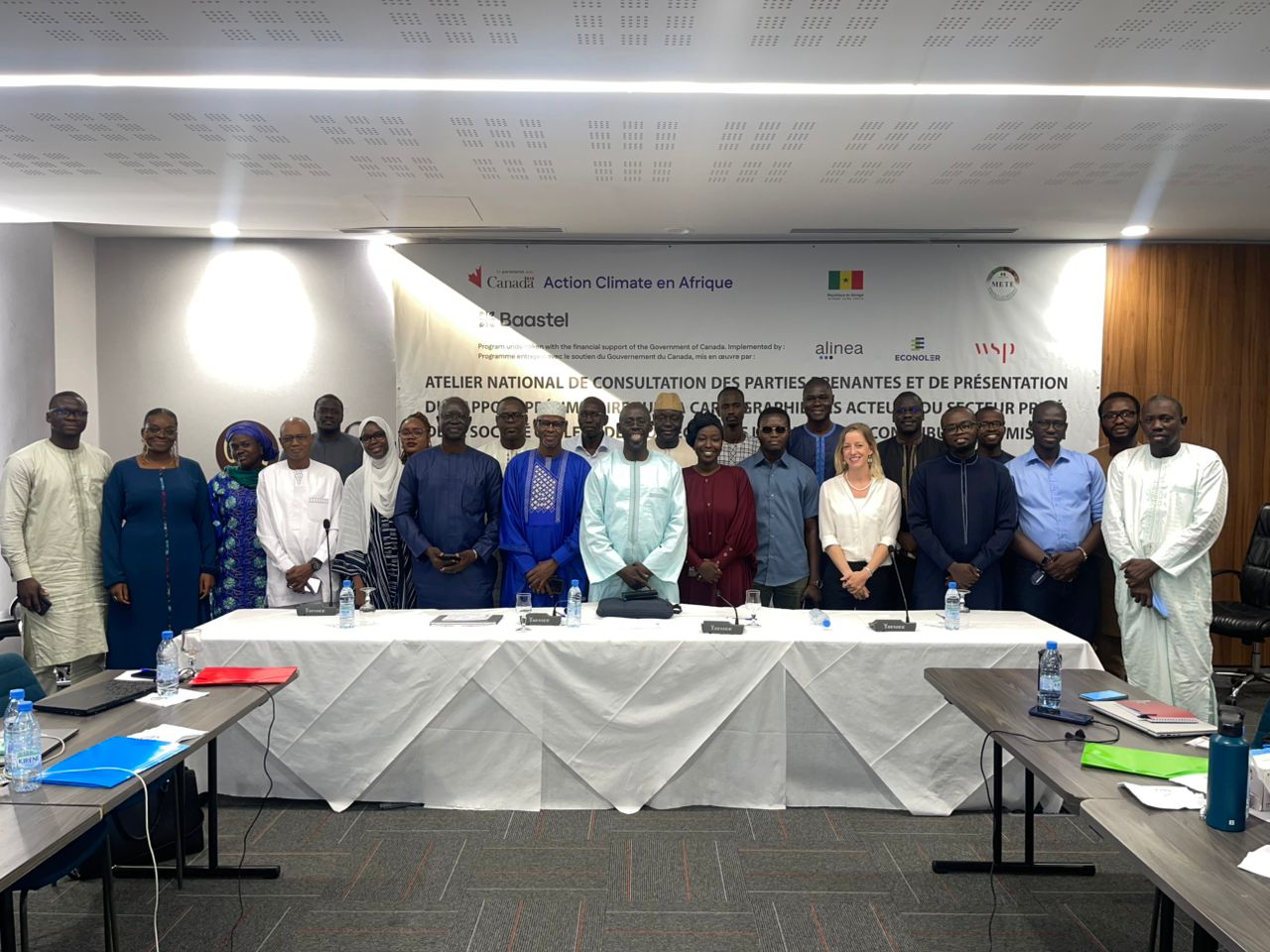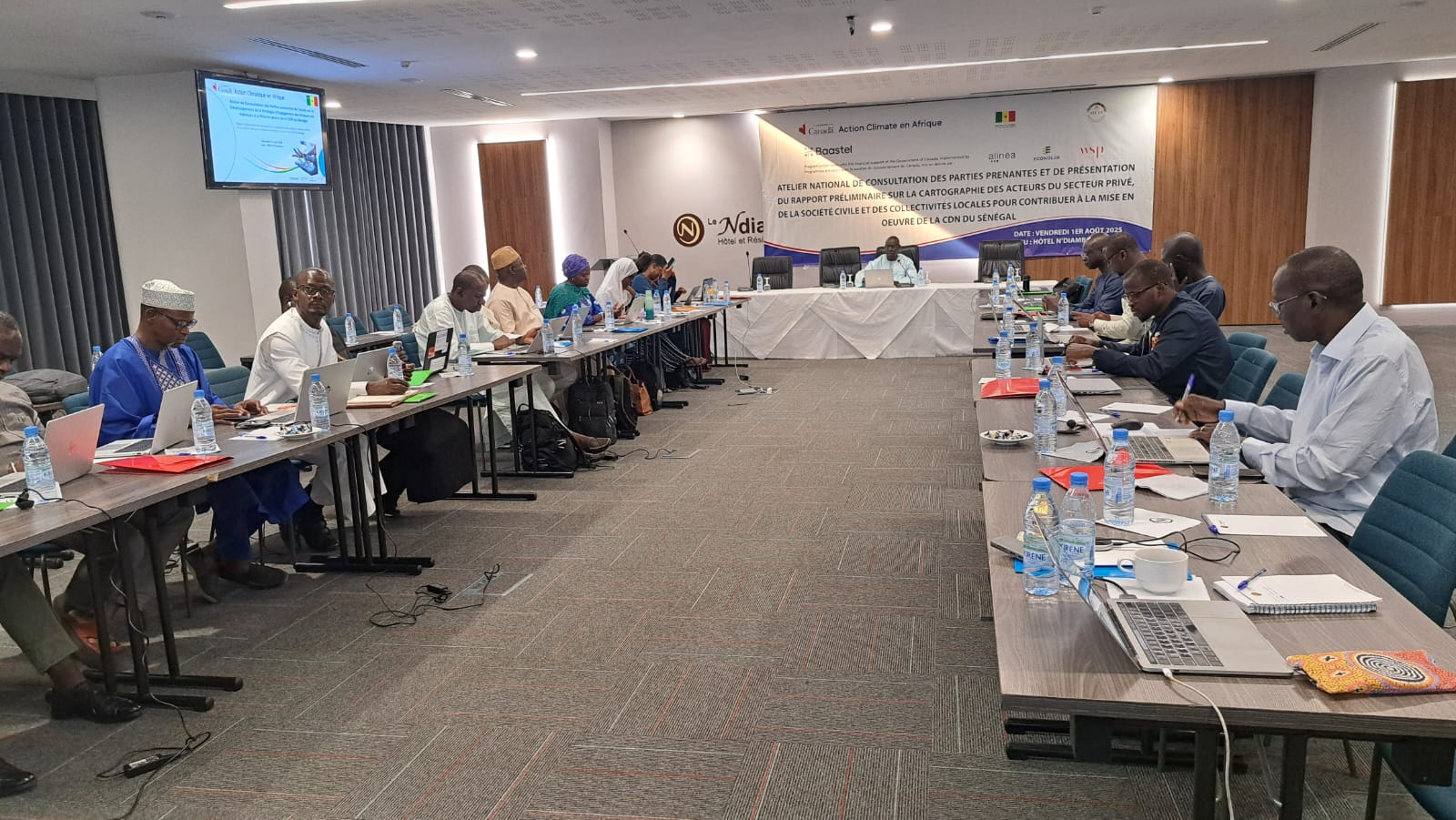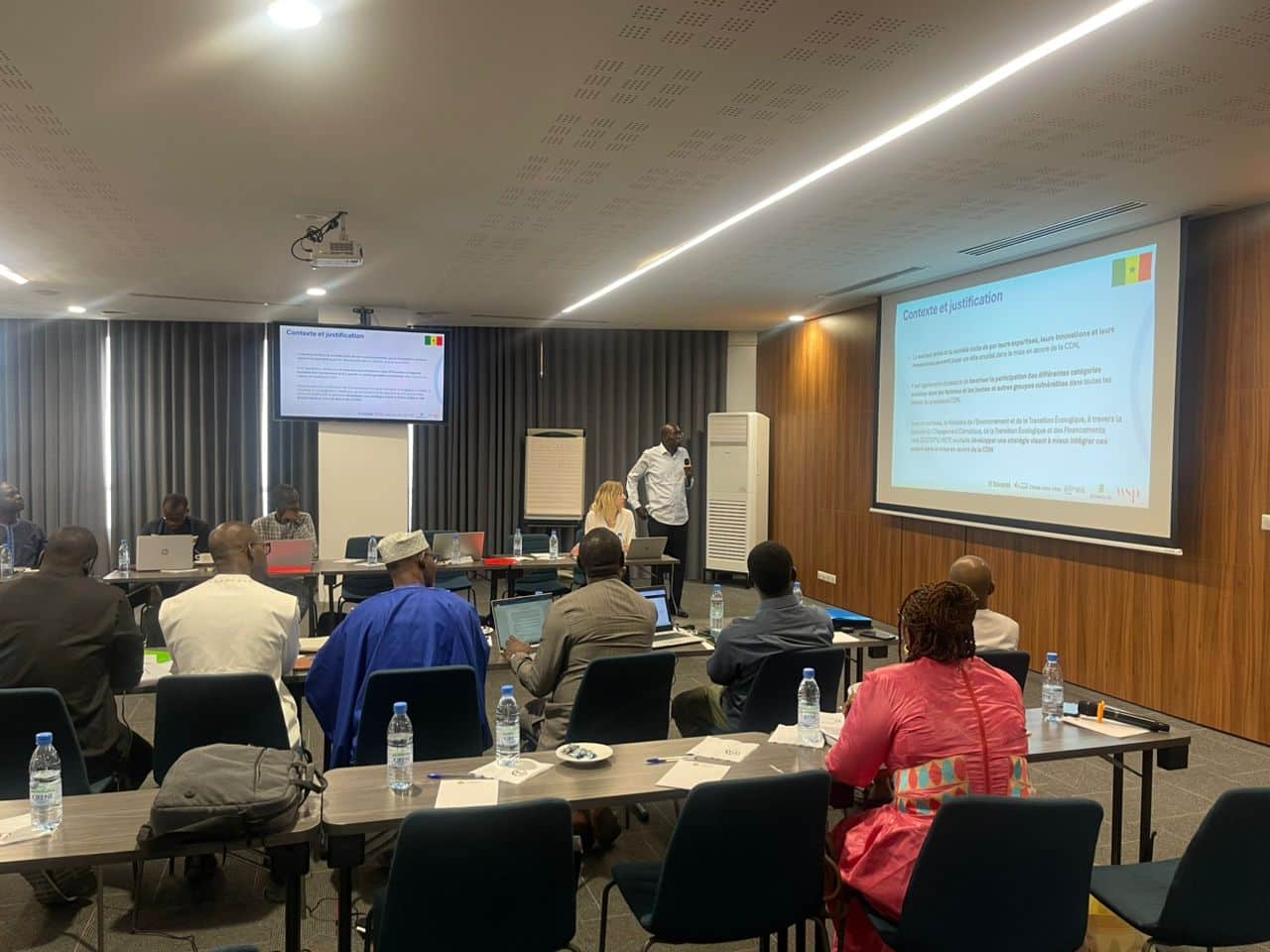
CAA Blog
As part of its Nationally Determined Contribution (NDC), Senegal has committed to strengthening the involvement of the private sector and civil society in the fight against climate change. The strategy currently being implemented aims to mobilize these actors around green financing, innovation, and the execution of concrete actions to achieve the country’s climate goals.
The Climate Action Africa (CAA) project, supported by the technical expertise of the Baastel consulting group, is assisting the Ministry of Environment and Ecological Transition in this process. This includes analyzing existing initiatives led by civil society and the private sector, identifying gaps and needs, and developing tools to build capacity and ensure inclusive monitoring of progress.
A consultation workshop held last summer in Dakar brought together stakeholders to co-develop strategic directions for this engagement strategy—marking a key milestone in the process. The ACA project is funded by Global Affairs Canada and implemented by Alinea, Econoler, and WSP.




Mobilizing the Private Sector and Civil Society for Climate Action: Workshop Highlights in Dakar
August 25, 2025
By Melody Braun (Baastel) and Mouez Ben Chaabane (Climate Governance Advisor, CAA)
Faced with growing climate challenges—rising temperatures, sea level rise, and land degradation—Senegal must reconcile socioeconomic development with the reduction of greenhouse gas (GHG) emissions. Under the Paris Agreement, the country has committed, through its NDC, to strengthening the resilience of key sectors while reducing emissions. However, the resources required far exceed the State’s current capacities. With technical support from Baastel under the ACA project, the Ministry is developing a national engagement strategy. The private sector and civil society play a crucial role:
- Businesses can mobilize financing and innovation.
- Civil society organizations encourage awareness, advocacy, and local implementation.
A Participatory and Inclusive Workshop: On August 1, 2025, a consultation workshop was held in Dakar to share initial findings from the mapping of climate initiatives led by the private sector and civil society, and to collectively define the strategic directions of the national engagement strategy. The workshop was informed by an online survey identifying over 30 climate initiatives currently underway or planned.
Participants (27 total) included:
- Government institutions
- National and international NGOs
- Farmers’ organizations
- Youth associations
- Trade unions
- Private companies
- Technical and financial partners
Discussion Topics
The SWOT analysis (Strengths, Weaknesses, Opportunities, Threats) highlighted core strengths: CSO mobilization, growing private sector interest in green solutions; and some weaknesses: low representation of women and youth, limited access to data and funding, competition among local actors. Other topics discussed:
- Awareness and ownership of the NDC by stakeholders
- Contributions aligned with NDC objectives
- Integration of gender and social inclusion
- Barriers to accessing climate finance, especially for rural actors
Key Recommendations
Participants proposed several recommendations for the Ministry and consultants, including:
- Strengthen communication around the NDC, especially at the local level
- Develop an operational communication plan with dedicated resources
- Increase CSO and private sector participation in all phases of the NDC
- Create data collection tools and shared accountability mechanisms
- Better integrate women and youth into climate governance structures
Participant Testimonials
“This workshop marks a crucial step in strengthening the participation of non-state actors. A successful NDC is one that is understood and embraced by all.”
— Idy Niang, Directorate of Climate Change, Ecological Transition and Green Financing (DCCTEFV)“Our local realities must be better considered. We are ready to contribute, but mechanisms must be tailored to our needs and capacities.”
— Representative, National Council for Rural Dialogue and Cooperation (CNCR)“This mapping exercise is an opportunity to pool efforts and avoid duplication.”
— Oxfam and Enda Energie
Next Steps for the CAA Project
This process aims to co-create an operational roadmap to mobilize more funding, foster innovative partnerships, and ensure equitable participation in Senegal’s climate efforts. This workshop marks the first step in Baastel’s mission under CAA. Upcoming steps include:
- Mapping and analyzing existing actions
- Identifying financing needs and obstacles
- Assessing capacity-building needs, with a focus on women, youth, and vulnerable groups
- Developing an inclusive monitoring and evaluation framework
- Validating the final strategy at a national workshop in October
Learn more about the initiative here.



